Top 20 poorest states in Nigeria and the factors behind their economic struggles
Nigeria is a federal republic comprising 36 states and the Federal Capital Territory. The country grapples with a notably high corruption rate, which has considerably impacted the nation's overall development and, in particular, its states. Here are some of the poorest states in Nigeria.
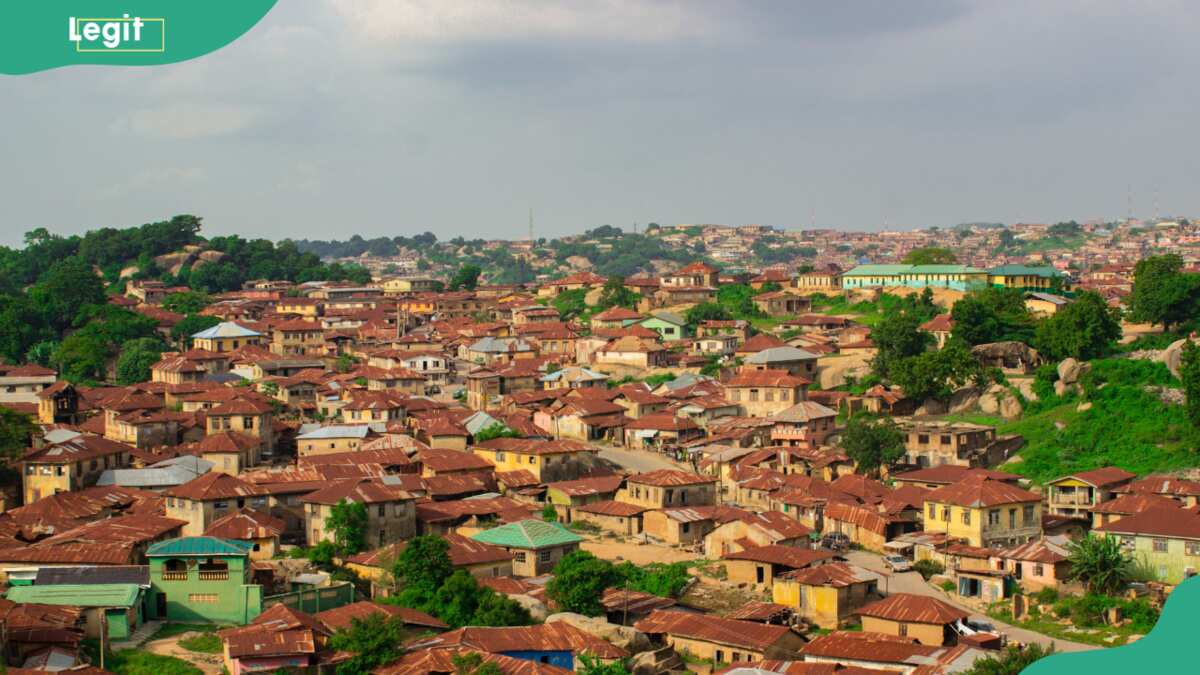
Nigeria is a very wealthy country with a large population to support trade. It has a robust economy and abundant natural resources such as oil. Despite this, poverty remains unacceptably high.
The top 20 poorest states in Nigeria
According to Statista records, the following are the names of Nigeria's poorest states and their poverty percentages.
1. Sokoto State
- Poverty percentage: 87.73%
- Capital: Sokoto
The Sokoto State is considered to be one of the poorest states in Nigeria. It is located in the extreme northwest of the country. Over eighty per cent (80%) of the inhabitants of Sokoto State practice one form of agriculture or the other.
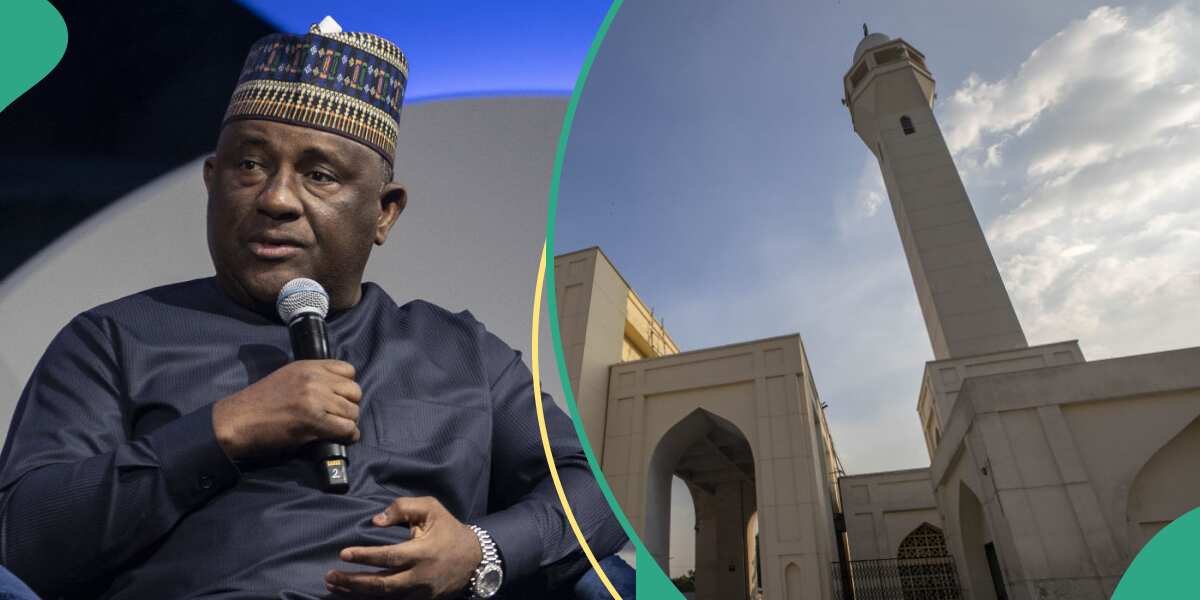
Read also
Nigeria's 2nd richest man Abdul Samad Rabiu donates over N1.9bn to reconstruct mosque
2. Taraba State
- Poverty percentage: 87.72%
- Capital: Jalingo
https://www.tarabastate.gov.ng/about/
Taraba State derives its name from the Taraba River, which flows through its southern region. The primary livelihood of the residents centers around agriculture. Taraba State is known for cultivating cash crops such as coffee, tea, groundnuts, and cotton.
3. Jigawa State
- Poverty percentage: 87.02%
- Capital: Dutse
Jigawa is one of the most populated states in the country. Jigawa State was created in 1991 from the northeastern-most region of Kano State. Given its semi-arid climate, residents rely heavily on agriculture.
4. Ebonyi State
- Poverty percentage: 79.76%
- Capital: Abakaliki
The Ebonyi State grapples with economic challenges primarily due to the prevalent practice of subsistence agriculture among its population. This limited economic diversification results in a need for more job opportunities, prompting many residents to migrate to neighbouring states in search of employment.
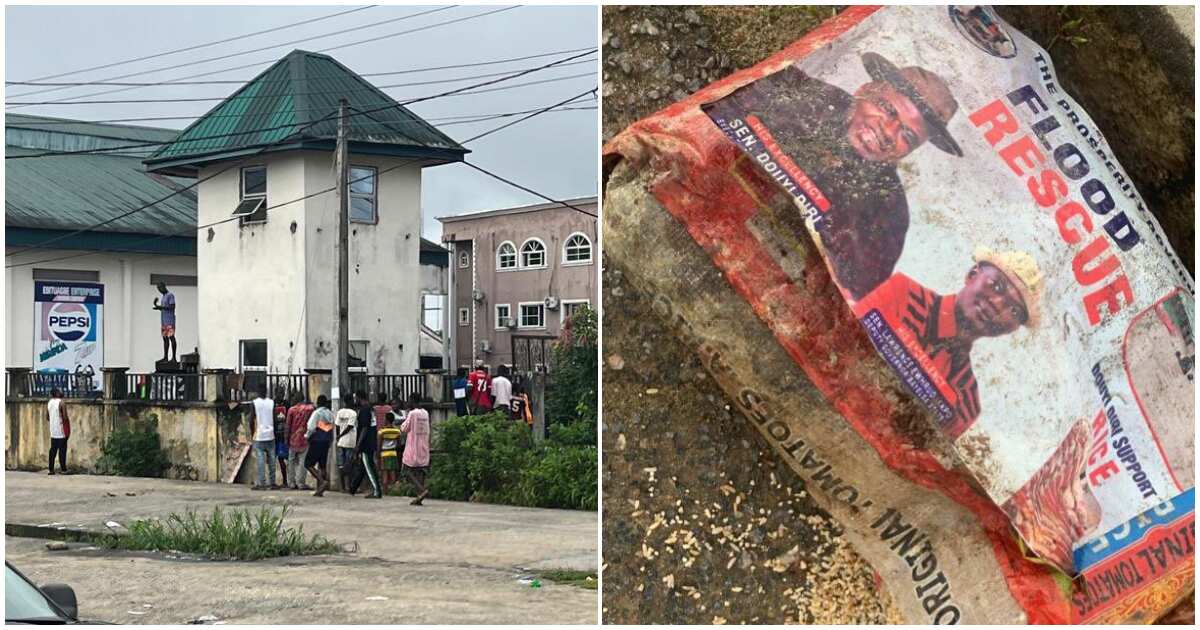
Read also
Just In: Residents invade, loot food items from palliative warehouse in Bayelsa
5. Adamawa State
- Poverty percentage: 75.41%
- Capital: Yola
Adamawa State is situated within Nigeria's North-East geopolitical zone. Tragically, in October 2022, a devastating flood event resulted in the loss of 37 lives in Adamawa State.
6. Zamfara State

- Poverty percentage: 73.98%
- Capital: Gusau
Zamfara is a region characterized by a high population density, primarily inhabited by the Hausa people. The climate in Zamfara State is tropical, marked by temperatures that can soar to 38°C (100.4°F). Agriculture is the predominant occupation, with over 80 percent of the population actively involved in farming.
7. Yobe State
- Poverty percentage: 72.34%
- Capital: Damaturu
Yobe State boasts a significant population whose primary livelihood revolves around agriculture. Moreover, Yobe State hosts one of West Africa's largest cattle markets, situated in Potiskum.
8. Niger State
- Poverty percentage: 66.11%
- Capital: Minna

Read also
Palliative: PDP northern state governor purchases Innoson buses worth over N10bn
Niger is the largest state in the country by area, located in the North Central region of Nigeria. Much of Niger State's economy relies on agriculture, but the region faces challenges such as erratic rainfall patterns, desertification, and soil erosion.
9. Gombe State
- Poverty percentage: 62.31%
- Capital: Gombe
Even though the state is nicknamed the "Jewel in the Savannah", Gombe State faces problems such as inadequate infrastructure, poor road networks and limited access to electricity.
10. Bauchi State
- Poverty percentage: 61.53%
- Capital: Bauchi
Bauchi State is among the most populated states in the country. The state was formed in 1976 when the former North-Eastern State was broken up. Bauchi State's economy partially relies on livestock and crops.
11. Enugu State
- Poverty percentage: 58.13%
- Capital: Enugu
Despite having favourable soil climate conditions year-round, Enugu State is categorized as one of the poorest states, with an estimated poverty rate of approximately 58.13%. The prevalent religion in Enugu State is Christianity, although some adherents of Islam and traditional worship exist.

Read also
“Working for 1hr shows you are employed”: Nigeria’s unemployment rate drops to 4.1% in Q1 2023
12. Nasarawa State

- Poverty percentage: 57.3%
- Capital: Lafia
Nasarawa State is home to diverse ethnic communities, including the Koro and Yeskwa. Over its history, Nasarawa State has unfortunately experienced periods of violence, with the most significant being the ongoing conflict primarily centered on land rights between herders and farmers.
13. Katsina State
- Poverty percentage: 56.42%
- Capital: Katsina
Katsina State borders Kaduna, Zamfara, Kano, and Jigawa States. It has been one of the Nigerian states hit hardest by terrorism. This has greatly affected personal development and the growth of Katsina State.
14. Kano State
- Poverty percentage: 55.1%
- Capital: Kano
Kano State is one of the most populous states in Nigeria. Kano State is faced with a range of challenges, including attacks by the Islamist extremist group Boko Haram and inter-religious conflicts, all of which contribute to pervasive poverty in the region.
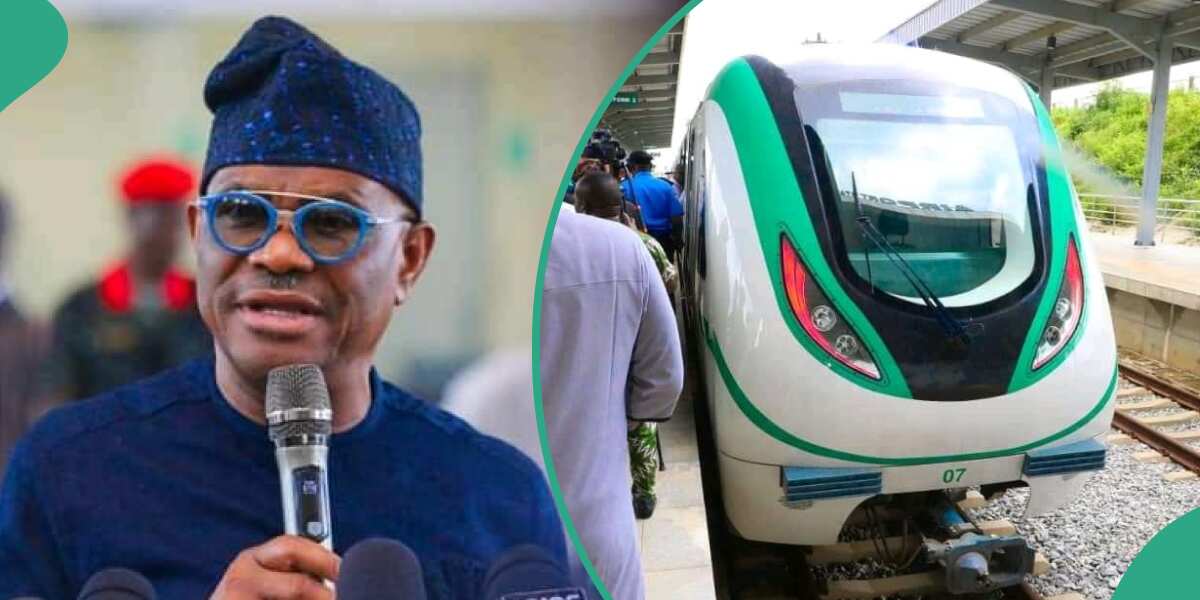
Read also
Abuja Light Rail project: Wike gives contractors 8-month ultimatum for completion
15. Plateau State
- Poverty percentage: 55.1%
- Capital: Jos
The state has experienced tribal conflict for many years, which has also caused diversification within its inhabitants. This has caused Plateau State's economy to depress.
16. Kebbi State
- Poverty percentage: 50.2%
- Capital: Birnin Kebbi
Kebbi State suffers from deficient infrastructure characterized by insufficient road networks, limited electricity access, and healthcare facilities. These shortcomings hinder business development and the Kebbi State's ability to attract foreign investments.
17. Kaduna State
- Poverty percentage: 43.5%
- Capital: Kaduna
Kaduna State has witnessed episodes of intense ethnic and religious strife. The 2002 Miss World riots in the Kaduna State's capital resulted in approximately 250 fatalities and the displacement of roughly 30,000 people who lost their homes.
18. Federal Capital Territory

- Poverty percentage: 38.7%
- Capital: Abuja
This territory is situated to the north of the junction where the Niger River and Benue River meet. Federal Capital Territory's population primarily depends on the extraction of resources such as marble, tin, clay, mica, and tantalite.

Read also
Lagos: Why complaints of lopsided appointments will be recurring, former gov'ship candidate reveals
19. Cross River State
- Poverty percentage: 36.3%
- Capital: Calabar
Cross River State's economy partially relies on crops, such as cocoyam, rubber, oil palm and plantain crops, along with fishing. The people of Cross River are predominantly Christian.
20. Benue State
- Poverty percentage: 32.9%
- Capital: Makurdi
Even though Benue is a rich agricultural region, it still faces security challenges and conflicts which can disrupt economic activities and displace communities. Benue State consists of twenty-three Local Government Areas.
Major factors behind their economic struggles
Here are some key factors contributing to economic struggles and high poverty rates in these states:
- The high unemployment rate has made most people struggle to earn a living.
- Several states in Nigeria face ongoing security challenges, including terrorism, banditry, and communal conflicts.
- Corruption at various levels of government has diverted resources away from development projects and essential services.
- Inefficient and ineffective public administration has misallocated resources and hindered the delivery of essential services.
- Rapid population growth in some states has put pressure on resources, making it challenging to provide adequate services and opportunities for all residents.
- Land and tribal disputes and battles over natural resources such as water and minerals have disrupted agricultural activity and contributed to poverty.
- Many of these states rely heavily on agriculture, often subsistence farming, which can be vulnerable to environmental factors like droughts and pests.
- Poor transportation infrastructure has hindered economic growth.
- Political instability, including disputes over leadership and governance.
- Poor education has resulted in poor access to quality education, limiting people's job opportunities.
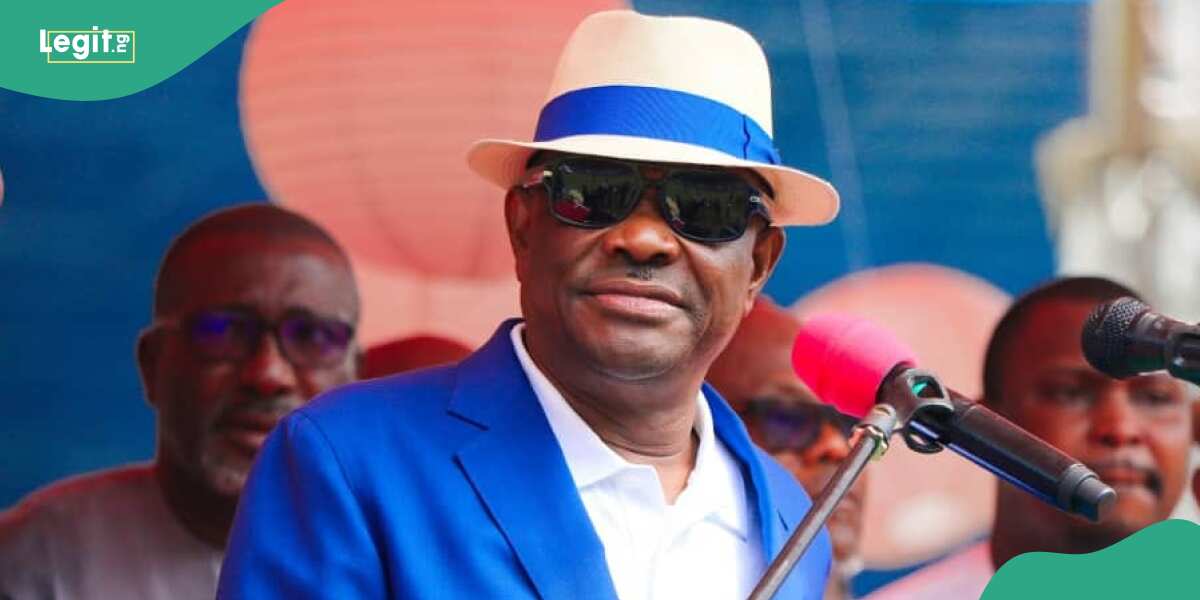
Read also
“Corn sellers cause insecurity in Abuja”: Wike claims, issues fresh directive to FCTA directors
Which state is the poorest in Nigeria in 2023?
Here is a summary table of the poorest states in the country.
| State | Poverty percentage |
| Sokoto State | 87.73% |
| Taraba State | 87.72% |
| Jigawa State | 87.02% |
| Ebonyi State | 79.76% |
| Adamawa State | 75.41% |
| Zamfara State | 73.98% |
| Yobe State | 72.34% |
| Niger State | 66.11% |
| Gombe State | 62.31% |
| Bauchi State | 61.53% |
| Enugu State | 58.13% |
| Nasarawa State | 57.3% |
| Katsina State | 56.42% |
| Kano State | 55.1% |
| Plateau State | 55.1% |
| Kebbi State | 50.2% |
| Kaduna State | 43.5% |
| Federal Capital Territory | 38.7% |
| Cross River States | 36.3% |
| Cross River State | 32.9% |
What are the 5 poorest states in Nigeria?
The top five include:
What are the top 10 poorest states in Nigeria?
The top poorest states are:

Read also
Pictures, details emerge as IPOB insurgents reportedly attempt attack on army base, meet waterloo
Which area of Nigeria is the poorest?
The North West and North East geopolitical zones have the highest poverty rates in their states.
Which is the poorest state in South West Nigeria?
Ekiti state is the poorest in the South West geopolitical zone, with a poverty percentage of 28%, and is the tenth poorest state in Nigeria. The state faces insufficient investment, poor infrastructure, and restricted access to finance.
Which is the richest state in Nigeria?
Lagos is the richest state in Nigeria, with a GDP of $33.68 billion and an annual budget of $4.2 billion. The state is also among the oldest in Nigeria, having been established in 1967.
While the poorest states in Nigeria have unique cultural, historical, and economic factors that contribute to their current status, it is evident that concerted efforts are needed to alleviate the suffering of their residents.

Legit.ng recently published an article about first class kings in Nigeria. In ancient Africa, kings were political and traditional figures in their kingdoms.
Kings in Nigeria are classified as first class kings (Obas) and are mostly rulers of the most ancient kingdoms in the country. These crowned kings have more influence in Nigeria than kings and traditional rulers from other tribes.
Source: Legit.ng
ncG1vNJzZmivp6x7rbHGoqtnppdkrrS3jKWcoKGkZMGwvI5tZ2psZ2V6tLHEZquhnV2lvLC%2BxKyrZquklsGmv4yipWammZyys7XAaA%3D%3D